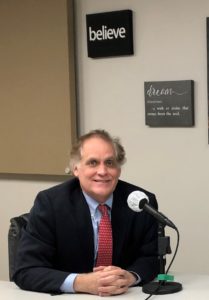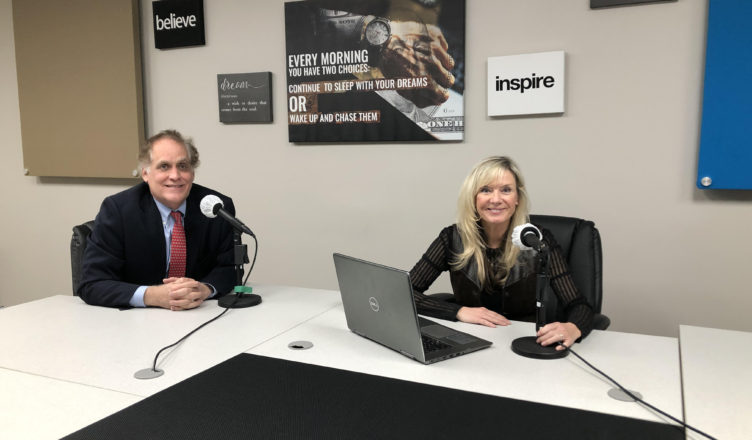Financial Jargon and Tax Benefits on Franchise Business Radio
Interested in Franchise Ownership?
Contact Pamela Currie to receive a COMPLIMENTARY Consultation on Selecting a Franchise.
Pamela Currie, Host of the Franchise Business Radio show and Founder of Franchise Intellect, Inc. www.FranchiseIntellect.com
Mobile: 847-970-8765
Email: Pam@FranchiseIntellect.com
To learn more about guest topics, contacting a guest or becoming a guest on the Franchise Business Radio show simply email Pam@FranchiseIntellect.com
 John Quattrocchi, owns a CPA practice. and offers end to end accounting and tax services to franchisors and franchisees. Quattrocchi was interviewed by Franchise Business Radio Host and Certified Franchise Consultant, Pamela Currie, and explains financial terms and tax advantages for business owners.
John Quattrocchi, owns a CPA practice. and offers end to end accounting and tax services to franchisors and franchisees. Quattrocchi was interviewed by Franchise Business Radio Host and Certified Franchise Consultant, Pamela Currie, and explains financial terms and tax advantages for business owners.
Here are some interview excerpts.
Currie: Explain what is meant by gross revenue versus net?
Quattrocchi: Gross revenue is total sales. The total amount of money you bring in the house. Net profit is how much is left after paying all your bills and your expenses. Let me say this about total sales and net profit; it is important to understand that franchisors usually set their royalties based on the franchisee’s total sales. So, the franchisor gets paid off of the top line and then the business owner (franchisee) gets to keep and profit off of the bottom line number, which is the net or the cashflow number.
Currie: How does a franchise business owner receive benefits and tax advantages?
Quattrocchi: When an individual becomes a business owner, he instantly morphs into two people. He is the owner that has to be compensated and he’s actually the employee in the business that has to be compensated. So, he might have an officer’s salary where he takes out a salary and compensation there. And then he gets paid on the bottom line profit. But in reality, there are other certain advantages that we may take on the tax side. I like to divide tax expenses into three basic categories. There’s the “Ordinary and Necessary Category”, such as rent, utilities, repairs, salaries, and wages. Then we have what I call the “Hybrid Expenses”, that we all have as individuals, but because you are self-employed, you might be able to deduct some or most of those expenses. That would be things like your car expenses, cell phone, maybe your computers, your internet at home and things of that nature that you use partially or mostly using in your business. Then we have other tax advantage situations that I put in a third category simply because they are tax deductible. The most basic would be putting in a retirement plan. Retirement plan for a self-employed guy is basically where you take money out of one pocket and you put it in another, and you get a tax break for it. Obviously, you can’t use that money until you retire. It’s a tremendous tax saving.
 The Franchise Business Radio show is a platform to bring together franchise professionals to connect, educate and collaborate to serve the franchise community and those considering franchise ownership.
The Franchise Business Radio show is a platform to bring together franchise professionals to connect, educate and collaborate to serve the franchise community and those considering franchise ownership.
Spotlighting Leaders in the Franchise Industry, experts in funding, legal, marketing and consulting.
Franchise Business Radio hosted by:
Pam Currie, Founder
Franchise Intellect, Inc
Made possible in part by:
Host Pamela Currie, Franchise Intellect, visit: http://www.FranchiseIntellect.com
Also made possible in part by:
Franchise City, visit http://www.Franchise.city
FranServe, visit https://franserve.com/
To nominate or submit a guest request visit: http://www.OnAirGuest.com
To view guest photos from this show, visit: http://www.ProBusinessPictures.com
 John Quattrocchi, owns a CPA practice. and offers end to end accounting and tax services to franchisors and franchisees. Quattrocchi was interviewed by Franchise Business Radio Host and Certified Franchise Consultant, Pamela Currie, and explains financial terms and tax advantages for business owners.
John Quattrocchi, owns a CPA practice. and offers end to end accounting and tax services to franchisors and franchisees. Quattrocchi was interviewed by Franchise Business Radio Host and Certified Franchise Consultant, Pamela Currie, and explains financial terms and tax advantages for business owners. The Franchise Business Radio show is a platform to bring together franchise professionals to connect, educate and collaborate to serve the franchise community and those considering franchise ownership.
The Franchise Business Radio show is a platform to bring together franchise professionals to connect, educate and collaborate to serve the franchise community and those considering franchise ownership.
